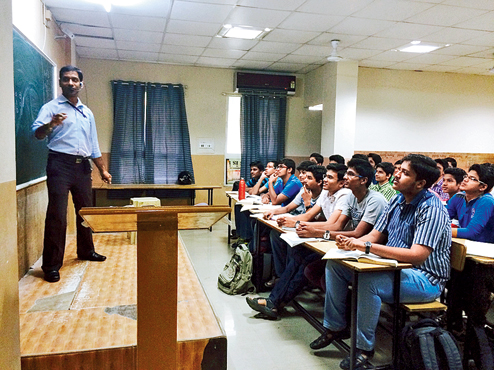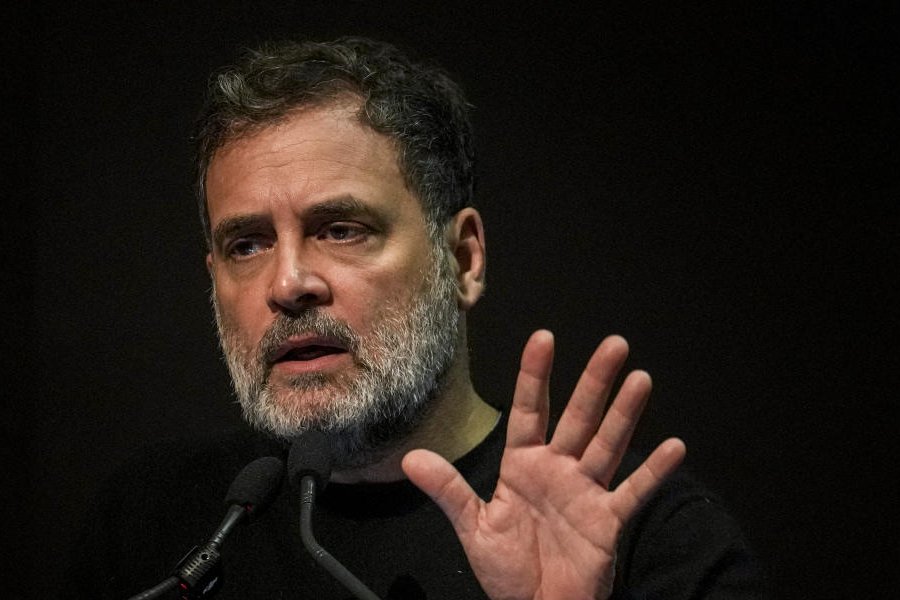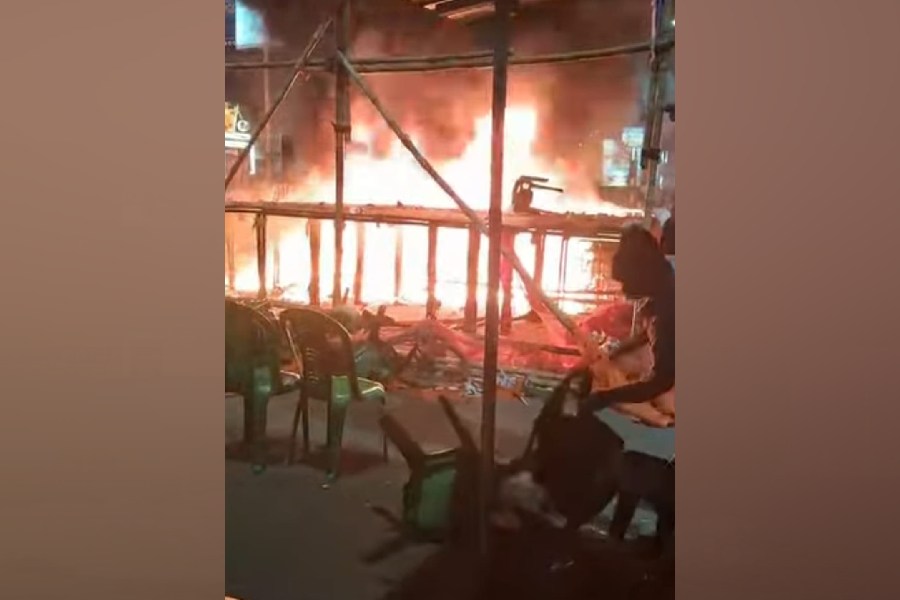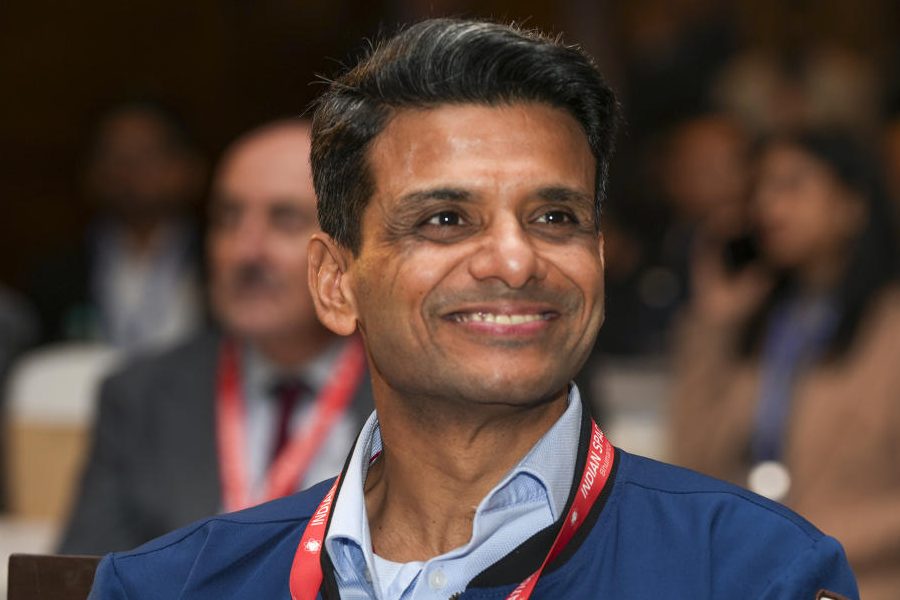
Three years after Ashish Tripathi cleared a medical school entrance examination, he was still poring over question papers. Not for his own exams, but for others seeking to join medical colleges. Till last year, he'd taken the entrance exams four times on behalf of would-be doctors in examinations conducted by the Bihar Combined Entrance Competitive Examination Board.
"I earned around Rs 80,000 per exam," confesses Tripathi, a student of King George's Medical University, Lucknow. "Now I am too busy with my own classes to do this anymore," he says.
That impersonators crack examinations for a fee is nothing new. But as more and more skeletons tumble out of the Rs 2,000-crore Vyapam scam closet, the spotlight once again is on these people - mostly young men - who are in the racket for a quick buck.
Reports suggest that over 300 impersonators appeared for entrance tests conducted over a decade by the Madhya Pradesh Professional Examination Board or the Vyavsayik Pareeksha Mandal. Some 25 to 40 people linked with the scam have died in this period, some mysteriously. In this one week, there were four deaths.
Vyapam conducts entrance tests for a master's in computer applications, pharmacy, nursing, animal husbandry and other courses. In 2013, after the scam hogged the headlines, it stopped conducting pre-medical and pre-engineering tests.
.jpg)
The police say that impersonators have been used in several other recruitment tests such as the Food Inspector Selection Test, Milk Federation Test, Subedar-Sub Inspector and Platoon Commander Selection Test and Police Constable Recruitment Test. Outsiders sat on behalf of aspirants for the Institute of Banking Personnel Selection exams and the State Bank of India Probationary Officers' exam too.
Impersonators can be found across the country. Over 1,000 people were arrested in Bihar this year, and 150 last year, for appearing on behalf of candidates in the Bihar Police constable recruitment examination. In 2008, more than 18,000 constables were questioned after complaints of impersonation in UP Police recruitment tests conducted during 2004-06. In 2012 and 2013, 22 and 60 management graduates respectively of Mumbai's Narsee Monjee Institute of Management Studies were accused of clearing their entrance exams with the help of impersonators.
Police sources say that the modus operandi is fairly simple. The ring involves officials on examination boards, middlemen, students or others who are recruited by agents, and candidates "desperate" for a seat or a job. The recruited men are mostly in 22-28 years age group. A candidate never meets the impersonator.
"Everything is handled by the middlemen, right from identifying an aspirant to hiring the impersonator," says Anand Rai, medical officer in the regional health and family welfare training centre in Indore, Madhya Pradesh. Rai was among the people who exposed the Vyapam scam.
Some of the impersonators are people who have already cleared a tough test. "They know their subject very well, so it is easy for them to solve a paper," a senior teacher at the Mahatma Gandhi Memorial Medical College at Indore says.
Tripathi, for instance, cleared the medical test in the third attempt. "After three attempts, I became quite a pro at answering questions," he says.
Some people who have not cleared an examination are recruited to sit for tests that are of lower levels. "An aspirant for the IAS, for instance, can pass a constable recruitment exam with ease. Just as someone preparing for the pre-medical test can clear the entrance exam for a pharmacy course," a senior Delhi police official says.
Impersonators don't appear for entrance tests in their own states, but in tests conducted elsewhere - so as to minimise the chances of being recognised. A large number of impersonators who appeared in exams conducted by Vyapam were from Kanpur and Lucknow in Uttar Pradesh and Kota in Rajasthan, cities which have a large concentration of medical and engineering students.
In the Vyapam scam, insiders say that 15 exam toppers from a Kanpur medical college took the tests on behalf of others.
"This is a chain system. Some senior students have done it in the past and earned good money. So they influenced their juniors too," a teacher says.
At the helm of affairs, however, are officials on the boards conducting the competitive examinations. "These top officials work with the middlemen," Rai says.
Sanjeev, one such aspirant, was approached by an agent. He wanted to become a doctor, but had not cleared the entrance examinations. "I got calls from unknown people who promised me a seat in a medical college in Indore if I paid Rs 15 lakh. I refused. If the sum was not this high, perhaps I could have convinced my father to pay up," he says.
Many of the pretenders and the aspirants are picked up from coaching institutes. The middlemen collect names and phone numbers of the aspirants and then call them. Sometimes, even the top managers of coaching institutes are involved, insiders say.
"There is a huge proliferation of coaching institutes in Indore. Coaching institutes want to show high success rates to attract more students. It is easier to do this through the racketeers who work in tandem with the examination board," says Mohit Yadav, CEO of the Krishna group of institutes - a coaching centre in Indore.
The middlemen zero in on the children of doctors, engineers and police officials. One, they have the money. And two, says Rai, "It is most likely that a doctor would want his or her child to become a doctor. It's the same for engineers and police officials."
The racketeers usually have access to candidates' application forms. The candidate's picture is replaced by that of the impersonator. The candidate is asked to keep his or her signature simple, so that the impersonator can copy it easily. After the test papers are submitted, officials on the examination board replace the photograph, putting the original back.

"Preparations start at least six months before the examinations. Spotting the aspirant and an impersonator, who is willing to take the risk, is a tedious job," says a teacher at a coaching institute, who had been asked by one of the middlemen of Vyapam to introduce him to candidates "desperate" for a seat.
According to the insiders, for a seat for the SC/ST category, candidates have to shell out around Rs 7 lakh while the rate for a seat in the general category is around Rs 15 lakh. This money is paid to the racketeers, who then give the board officials their share, and Rs 20,000-30,000 to the agents. The official sitting at the examination board, whose job is to change roll numbers, and photographs, gets Rs 1 lakh.
Around Rs 2 lakh is paid to the impersonator, who gets half the sum before the exam, and the rest after the results are out, and if the candidate gets his seat. "There are occasions when the impersonator doesn't receive the promised sum. But he cannot complain to anybody because he himself will get exposed," Tripathi says.
As some cases started surfacing in 2009, measures were taken by MP's examination board. In 2010, it started using biometric technology: thumb impressions and photographs of all those appearing for the exams had to be matched with those after the results were announced. "But fresh cases of impersonation came to light up to 2013," an Indore police official says.
The heat is on, but Tripathi has had his share of excitement. He is now focused on his exams. And, no, he has no idea how those studying medicine in Bihar - thanks to him - are faring.
(Some names have been changed to protect identities)











